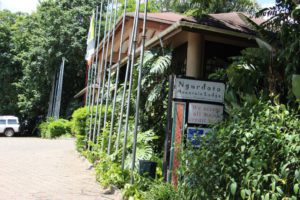In his speech before all the participants in the inter-Burundian dialogue in Arusha, Facilitator Benjamin Mkapa, has announced “there will be no agreement, declaration or binding document” after the two-week session expected to end this 8 December. In the 7 December plenary session that lasted thirty minutes, some points of convergence that could a form an agreement as well as points of divergence that could be the subject of dialogue and negotiation in the future have been identified.

Each group in the 4th session will have 5 minutes to give its view on the document handed by the Facilitator
Among the points of convergence, there is the commitment vis-à-vis the Arusha Agreement for Peace and Reconciliation in Burundi and the Burundi Constitution as the foundation of lasting peace, security and stability. Participants have also converged on the need to develop a roadmap for peaceful, credible, transparent, free and fair elections in 2020.
They also say there is a need to end impunity in Burundi and reject all forms of violence, including hate speeches, as a means of resolving political conflicts. The independence of the National Electoral Commission (CENI) and the inclusion of political parties and other stakeholders in the composition of its management to build confidence in its neutrality and credibility has also been among the hot topics discussed and converged on among participants.
The facilitator has also identified the points of contention that would be the subject of further dialogue among which is “the application of and respect for the fundamental freedoms of individuals and registered groups such as freedom of association, assembly, expression and movement,” the document reads.
The Facilitator also indicates that participants have different views on the respect for the sovereign right of Burundians to amend the constitution. However, he says, such a change should be inclusive and be the product of consensus.
Different views were also expressed on the amendment to the legislation aiming to provide for the voting law by simple majority or majority qualified for the adoption of laws instead of majority vote of two-third, as provided for in the Arusha Agreement and reconciliation in Burundi.
Stakeholders in the 4th session of Burundi peace talks do not share the same view on holding talks with armed groups willing to renounce violence.
The political space and the lifting of arrest warrants to some politicians and amnesty for political detainees were also among points that were not agreed on.
Benjamin Mkapa says the points of divergence require more consultation among the stakeholders so that there should be a way out of the political impasse that Burundi has been through since 2014 as soon as possible.
The Facilitator says each group will have five minutes to give its view on the content of the document.
The views will be shared with the Mediator in the Burundi peace talks, Uganda President Yoweri Museveni and the EAC Heads of State for further guidance.



















 IWACU Open Data
IWACU Open Data

